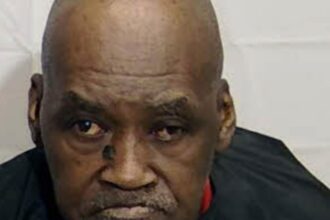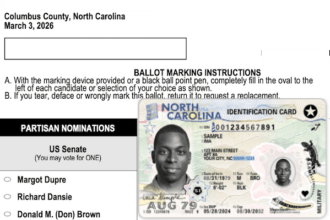Edited 07/03 at 1 p.m. with additional information.
Two million North Carolinians could see $4 billion in medical debt erased if a proposal by Gov. Roy Cooper is put into place that would increase Medicaid enrollees.
In a press conference Monday with state Health and Human Services Secretary Kody Kinsley, Cooper announced a plan he says will encourage hospitals to drop old debts dating back to 2014, in exchange for receiving more Medicaid dollars.
The state expands Medicaid access under the new budget, and more than 600,000 North Carolinians became eligible when new rules went into play earlier this year. Kinsley and Cooper said national figures show 41 percent of Americans have some medical debt, much of which has to be written off as uncollectable.
“Large medical bills from sickness or injury can cripple the finances of North Carolinians, particularly those who are already struggling,” said Cooper. “Freeing people from medical debt can be life changing for families, as well as boost the overall economic health of North Carolina.”
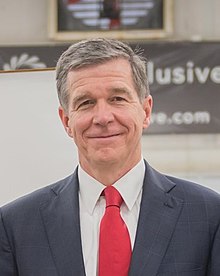
Cooper said medical debt is incurred by people regardless of whether they have insurance, and there is a disproportionate impact on Black and Hispanic communities, as well as people living in rural areas part. North Carolina hospitals currently hold an estimated total of more than $4 billion of debt and often expect to receive a small fraction of the original value through collections practices, Cooper said. That estimate does not include unpaid bills at specialists, outpatient clinics and general practitioners.
DHHS submitted a request to the U.S. Centers for Medicare and Medicaid Services (CMS) to approve the conditions hospitals must meet to receive an enhanced amount of Medicaid funds. Hospitals that choose not to meet these conditions will receive the standard amount of these funds.
On top of the list is relieving existing medical debt, and establishing policies to prevent the accumulation of medical debt for low- and middle-income families.
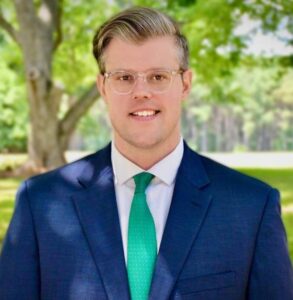
If the rules are approved by CMS, hospitals that implement a set of medical debt relief and mitigation policies can receive enhanced payments under the Healthcare Access and Stabilization Program (HASP). Hospitals that choose not to implement the policies will be eligible for HASP payments at a lower level.
“These policies will provide relief to consumers through forgiveness of existing debt, establish protections against the accumulation of future medical debt, and prevent problematic debt collection practices going forward,” Cooper said.
Among the rules hospitals will be required to implement to receive HASP payments are:
- Automatically enrolling people into financial assistance, known as charity care, by implementing a policy for presumptively determining individuals eligible for financial assistance through a streamlined screening approach.
- Relieving all medical debt deemed uncollectible dating back to January 1, 2014 for any individuals not enrolled in Medicaid with incomes at least at or below 350 percent of the federal poverty level (FPL) or for whom total debt exceeds 5 percent of annual income.
- Relieving all unpaid medical debt dating back to Jan. 1, 2014 for individuals who are enrolled in Medicaid.
- Providing discounts on medical bills of between 50-100 percent for patients with incomes at or below 300 percent FPL, with the amount of the discount varying based on the patient’s income.
- Not selling any medical debt for consumers with incomes at or below 300 percent FPL to debt collectors.
- Not reporting a patient’s debt covered by these policies to a credit reporting agency.
Columbus Regional is taking a wait and see approach to the governor’s proposed Medicaid deal.
In an email this morning, CRHS president Jason Beck said the hospital already participates in both Medicaid and charity care, as urged by the governor. More information is needed before CRHS can proceed, Beck said. The hospital had around $15 million last year in unpaid medical debt.
“Given the Governor’s recent announcement, more time is needed to understand what is contained in the pre-print submitted to U.S. Centers for Medicare and Medicaid Services (CMS) by the North Carolina Department of Health and Human Services (NCDHHS),” Beck said.

The local hospital already participates in several assistance programs.
“Columbus Regional Healthcare System, like many if not all, North Carolina hospitals, already has charity care and financial assistance programs in place. Last year, our community benefit from charity care, bad debt and unreimbursed costs of care exceeded $15 million.
Officials had mixed responses to Cooper and Kinsley’s announcement.
Rep. Brenden Jones of Columbus County noted that the strong fiscal stance taken by the legislature allowed the state to have the funds to expand Medicare coverage.
“Thanks to the financially responsible approach we took in the General Assembly to expand access to healthcare,” Jones said, “at least 600,000 more North Carolinians now have access to care.”
He noted that if the economy were in better shape, fewer North Carolinians might have crippling medical debt. He also questioned the impact that the debt relief might have on hospitals.
“When you consider the sad reality of (President Joe) Biden’s economy, it is no wonder that the 41 percent of Americans in significant medical debt are having difficulty paying it off.
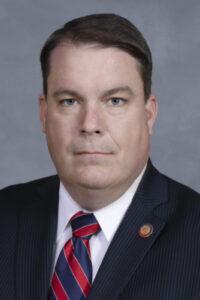
“While I applaud the Governor’s focus on relieving North Carolinian’s medical debt, I believe there are more responsible paths to achieve medical debt relief for North Carolinians without further burdening our hospitals.
“They deserve better than a governor who shows up to ribbon cuttings one day and threatens to withhold funds from them unless they meet his demands the next.”
State Treasurer Dale Folwell has championed the cause of reducing medical debt since he was elected. A harsh critic of surprise charges from hospitals and medical providers. Folwell publicized his own costs after a medical procedure two years ago, and has called on legislators to pass the Medical Debt De-Weaponization Act, requiring transparency in medical costs before they are incurred.
The treasurer called on other state officials to add his proposal to the debt-reduction plan. By reducing medical costs at the outset, he said, less debt will be created and hospitals will lose less money.
“We are glad that the Department of Health and Human Services and the governor have finally recognized my pro-family initiative to help prevent medical debt from decimating the finances of North Carolina families,” Folwell said in an email. “The best and most simple way that our new allies can be helpful in this fight is to immediately support that passed the Senate unanimously and is only one vote short from passing the House. We encourage DHHS and the governor to convince the hospital association to drop their opposition to this pro-consumer legislation.
N.C. Health News reported that the North Carolina Healthcare Association, which advocates on behalf of hospitals, said it “needs more time” to review the proposal, noting that it still requires approval by the CMS.
“We believe that the best solutions are always inclusive and transparent, with involvement by all stakeholders, including employers, payors and providers,” the association said in a statement. “For over a decade, North Carolina hospitals advocated for Medicaid expansion. We agreed to pay the non-federal share of the cost of expansion, which is only possible through the Healthcare Access and Stabilization Program (HASP).”





